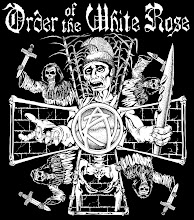
I must admit that I am a huge fan of exotica music. The music of Les Baxter, Martin Denny and Arthur Lyman fascinates me. However, the representation of Hawaii in exotica music has often depicted Hawaiian culture and the Hawaiian people as “savages.” In fact, Les Baxter’s “Ritual of the Savage,” featured songs like “Jungle River Boat.” Perhaps Mr. Baxter confused Hawaii with Africa, (especially with the sounds of screaming monkeys), but fusing these indigenous cultures together is a disservice to both. The Hawaiians were not, and are not, “savages.” It wasn’t the Hawaiian people who brought disease to Hawaii, instead, it was the filthy European sailors who believed that bathing caused disease, it was the European sailors who were riddled with venereal diseases and through their promiscuity, the Hawaiian people were infected. So the question is, who is the real savage?
In our current political climate, we often hear the clarion call to return to the “good old days” of the fifties. In fact, it was in this post World War II atmosphere that the exotica music genre was created. James Michener, a naval reservist stationed in the Pacific, and the author of “Tales from the South Pacific,” wrote of a idealized island culture, which then became a Broadway musical entitled “South Pacific” (American Heritage). Martin Denny famously played at Don the Beachcomber’s “Bora Bora Lounge” for over nine months in the heart of Waikiki and was a huge tourist attraction. With the release of Denny’s “Exotica,” tourists were able to “own” a piece of Hawaii (Exotica). For many in the Continental US, a trip to Hawaii was a promise of leisure-filled days and exotic, adventure-filled nights.
However, these “good old days” were a time of strife in Hawaii. In 1959, after years of pressure from a variety of sources, Hawaii was asked to vote to become either the State of Hawaii, or remain a territory of the United States. Notice that the choice to return to the sovereign nation of Hawaii was not offered. For many Hawaiians (Kanaka Maoli), the 1950’s are not the “good old days” (Aloha-Hawaii).

I continue to enjoy exotica music, and it is not my intention to “wreck” the pleasure of enjoying lounge music. However, it is important to note that through this music and its accompanying images, Hawaii became a place for visitors to live out their “savage-ness.” The promise of sex, (although not stated as such) with an exotic local man or woman is still featured in many of the brochures from the Hawaii Tourist Bureau. Easy living, where a tourist can be waited on hand and foot is also promoted. While the tiki lounges of a past era have lost their luster and have become “tacky” or “kitschy” by some, the images still remain, in fact it is difficult to imagine Hawaii without conjuring up the picturesque image of sitting on the beach, watching the sun set, with pounding surf and a rum-filled drink. This, like exotica music, sounds great, but it is not the reality of most of the people who live in Hawaii.

Hawaii/Statehood
American Heritage/Tiki
Exotica
A Really Great Essay on Politics and Hawaiian Music entitled, "The Politics of Meaning
Ironically, White Rose will be playing at Don Ho's on September 27th


No comments:
Post a Comment